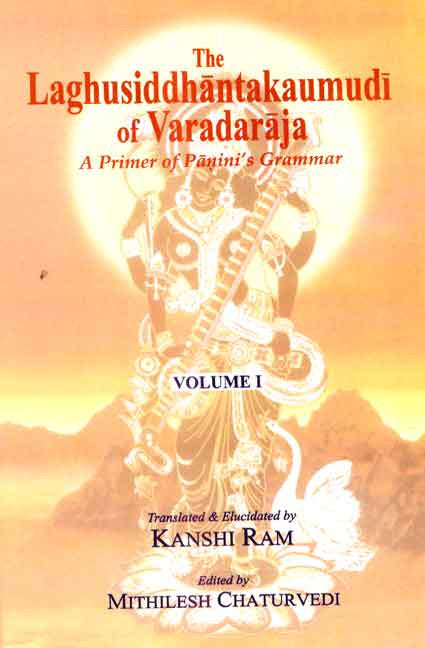The Laghusiddhantakaumudi of Varadaraja: Volume 1: A Primer of Panini's Grammar
The Laghusiddhantakaumudi of Varadaraja: Volume 1: A Primer of Panini's Grammar is backordered and will ship as soon as it is back in stock.
Couldn't load pickup availability
Varadaraja wrote the Laghusiddhantakaumudi, a short version of Bhattojidiksita's Siddhantakaumudi, in order to inculcate an ability in beginners to gain access to the Astadhyayi as he claims in the invocatory verse. This work, which is the first of the three-volume project, covers 371 sutras on samjna, sandhi, subanta and avyaya prakaranas. It includes the translation of the sutra and the vrtti on it by Varadaraja, which is followed by the paraphrased sutra in which padas are kept in nonsandhi form. The carried over padas are given along with the sutras from the Astadhyayi from which they have been carried over. In the elucidation that follows the paraphrase, the meaning of the sutra and the vrtti thereon is explained in detail. Relevant grammatical aspects have also been discussed so that some light is thrown on the depth and nuances of vyakarana-sastra. The present work fulfils a compelling need for a detailed commentary on the Laghusiddhantakaumudi in English.
Review(s)
About the Author(s)
Kanshi Ram taught Sanskrit at Hans Raj College, University of Delhi for 36 years and retired as Associate Professor in 2007. Besides contributing several research papers on different aspects of Indian Philosophy, he has published the following works: Integral Non-dualism: A Critical Exposition of Vijnanabhiksu's system of Philosophy (MLBD, 1995), Unadisutras in the Sanskrit Grammatical Tradition (Shivalik Prakashan, 2001), the annotated Hindi translation of Tarkasangraha with the Trakasangrahadipika of Annambhatta (MLBD, 2007) and a detailed three-volume commentary in English on the Laghusiddhantakaumudi of Varadaraja (MLBD, 2010-12). The Indian council of Philosophical Research recommended his name to translate the Nyayaratnadipavali of Anandanubhava. He started working on the present project "An annotated translation of Nyayaratnadipavali of Anandanubhava" in 2009 and finally submitted the manuscript to the Indian Council of Philosophical Research in December, 2013.
-
Pages
-
Edition
-
Size
-
Condition
-
Language
-
Weight (kg)
-
Publication Year
-
Country of Origin
-
Territorial Rights
-
Reading Age
-
HSN Code
-
Publisher




